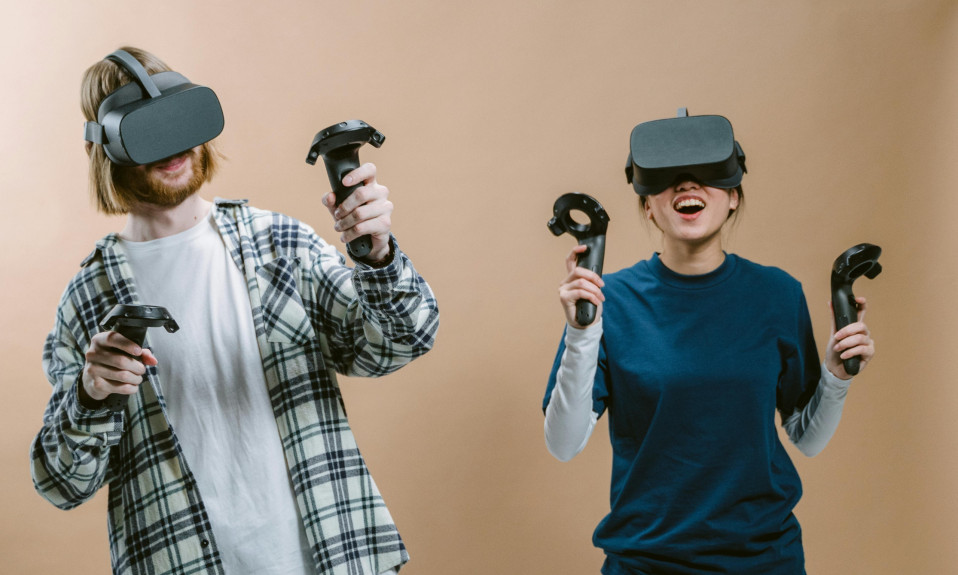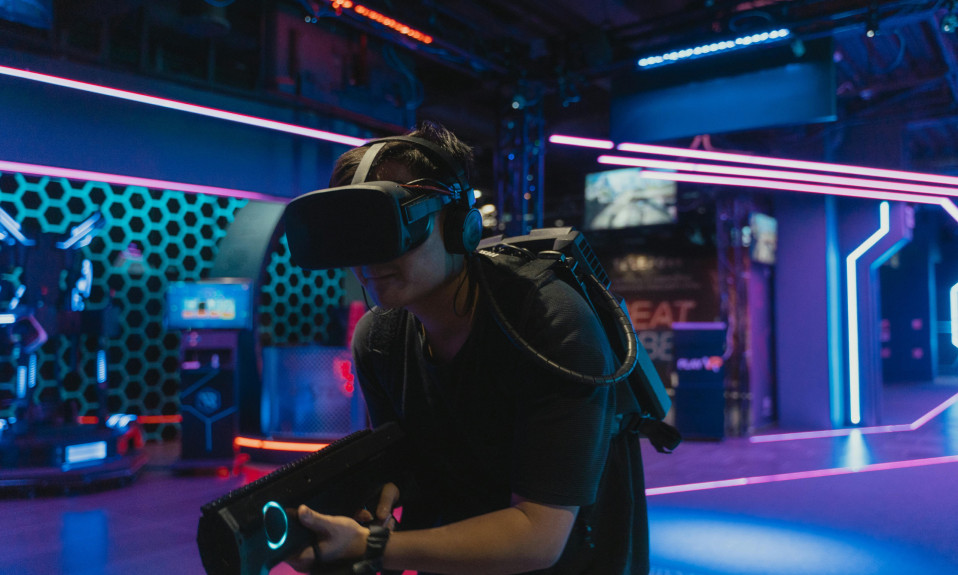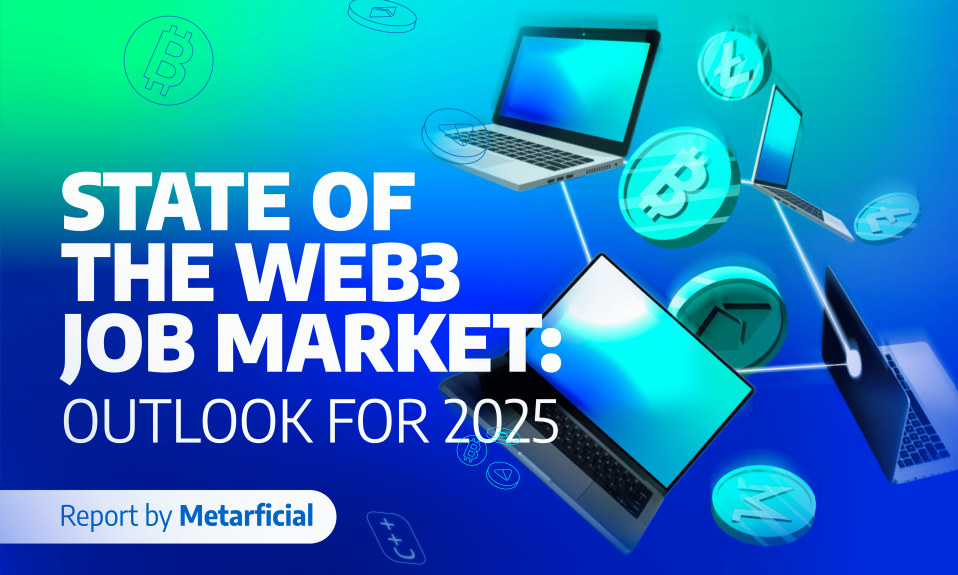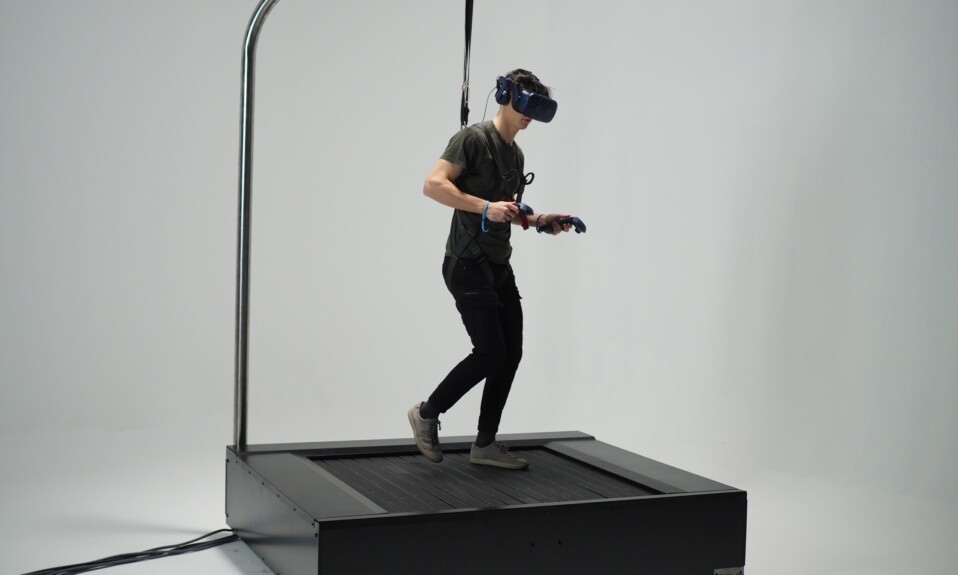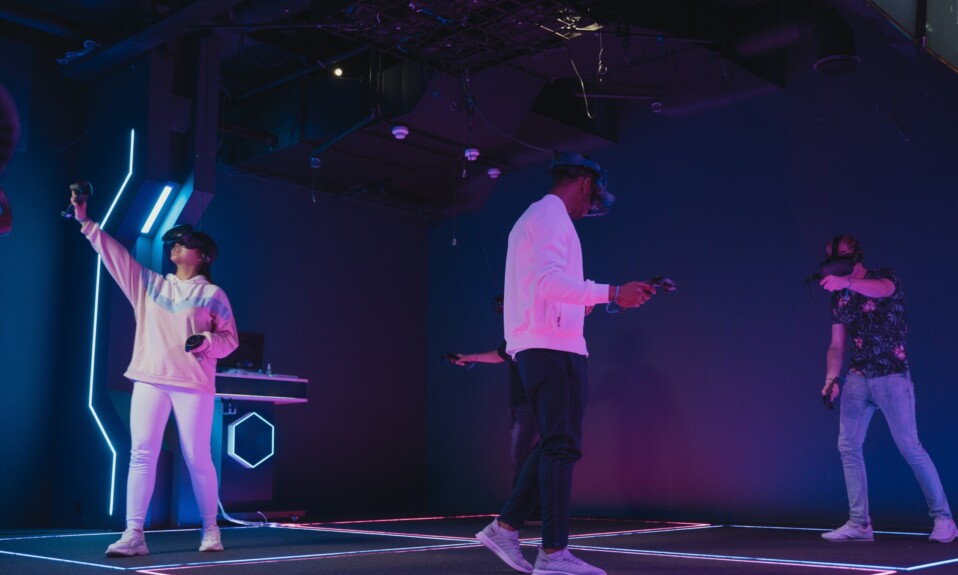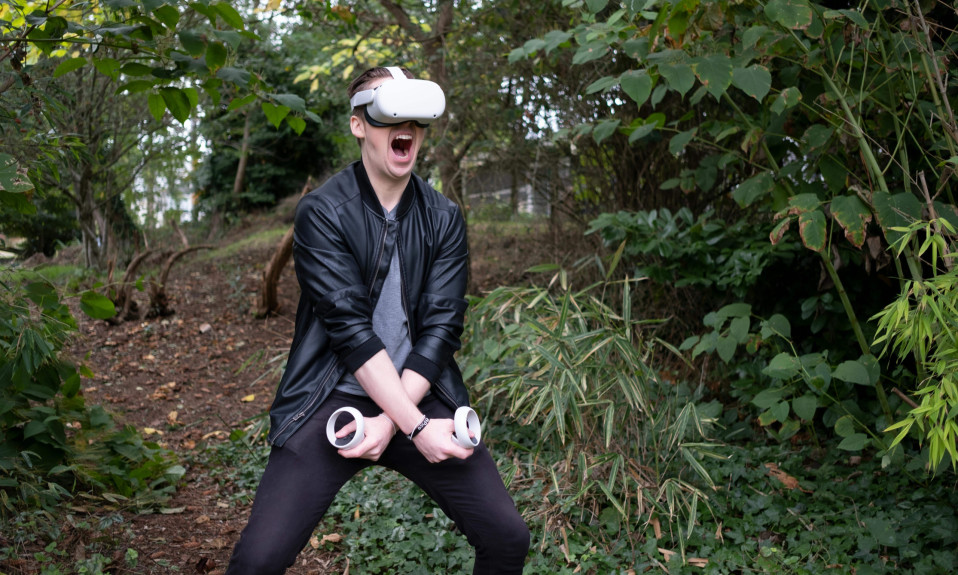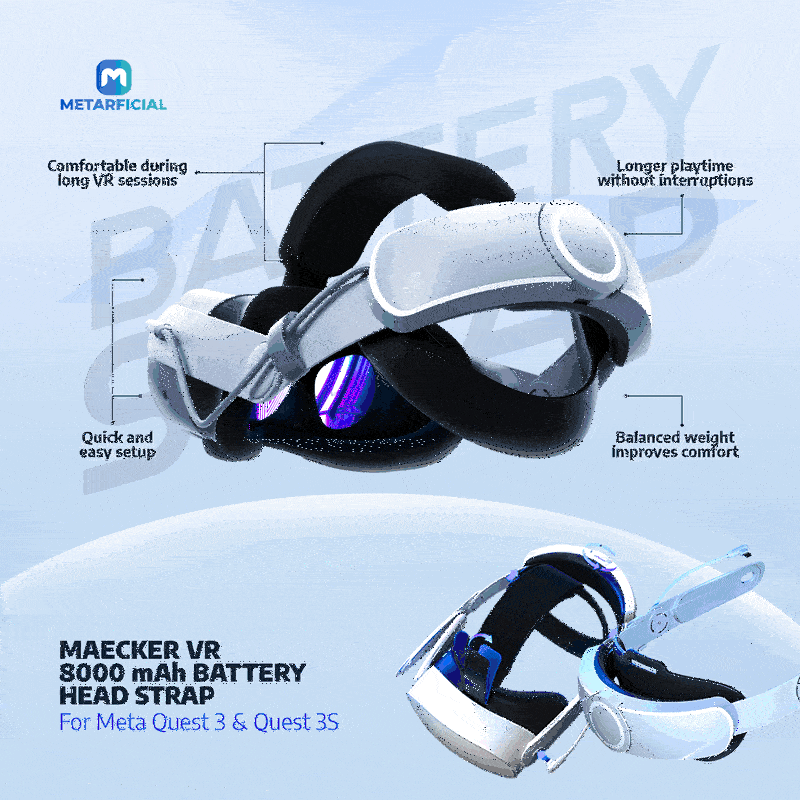The word “Metaverse” has been around for almost three decades now.
Coined by Neal Stephenson in his science fiction novel “Snow Crash” published in 1992, the concept of his metaverse represented a virtual reality-based ecosystem.
“Users accessed this metaverse, through personal or public terminals that projected high-quality virtual reality displays onto goggles worn by users, giving them a first-person perspective.” (1)
If the metaverse has been around for this long, why is there a new wave of buzz and hype around this topic?
In the past, the technology around high-quality graphics, internet connectivity, and 3D virtual worlds just wasn’t there compared to what we have today.
So the ideas and concepts of metaverses or virtual worlds back then sounded more like fiction or possible predictions of the future.
After Mark Zuckerberg’s recent announcement of Facebook’s parent company branded as “Meta” representing their long-term focus on contributing and actively building the metaverse, mainstream media went wild.
Popular news sites, newspapers, and publications jumped on the trend with a lot of noise, hype, and speculations about the metaverse and what it entails.
If you’re pretty new to the whole idea of “virtual reality, augmented reality” or generally all that pertains to “cyberspace” then we’ve got you covered.
In this article, we delve into the metaverse.
We talk about the current technologies supporting a seamless virtual experience and how they can impact our lives.
Without further ado, let’s get started.
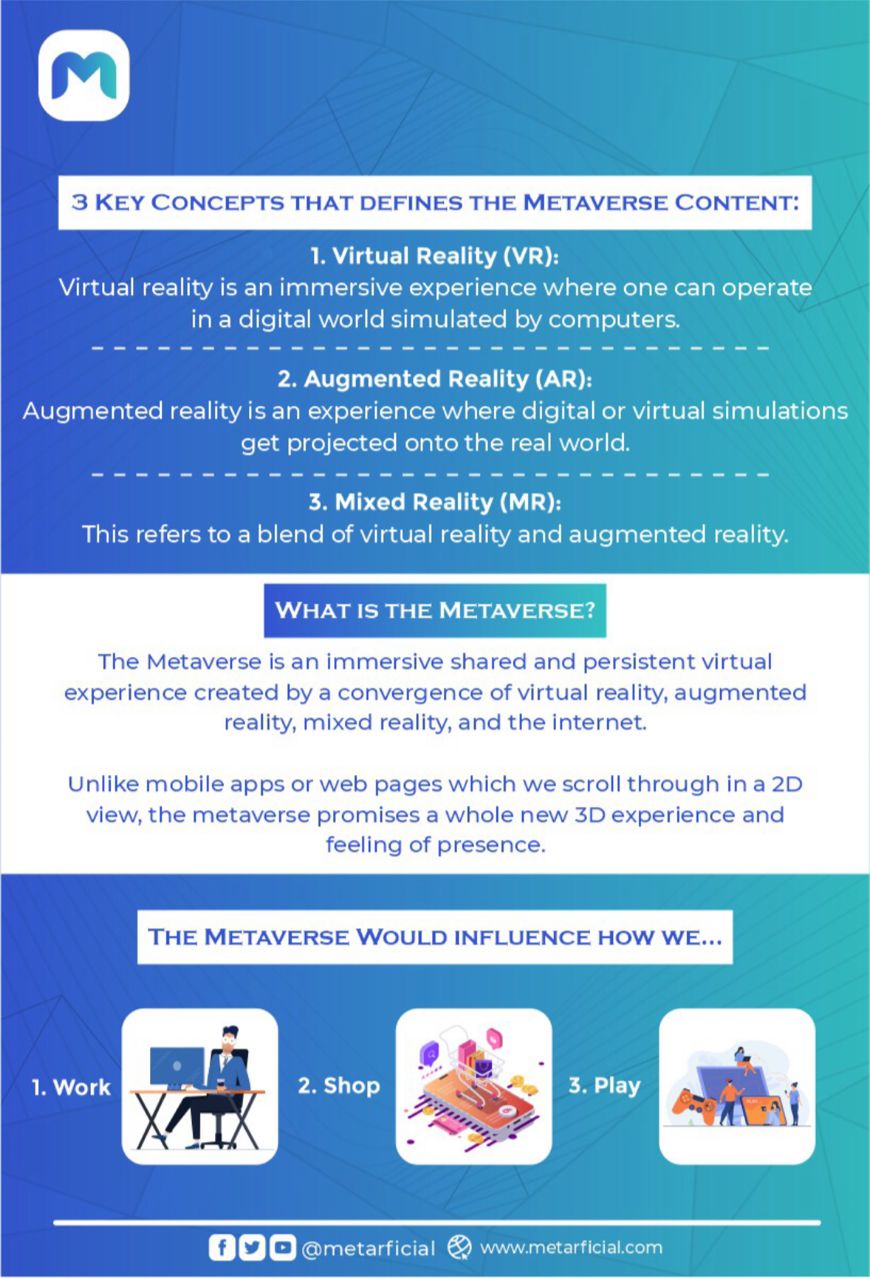
Quick Navigation
Understanding Key Concepts That Defines The Metaverse
Before we define what the metaverse is or what it is not, there are key concepts I’d like you to get a basic understanding of what they entail.
These key concepts, “virtual reality, augmented reality, and mixed reality” define what an experience in the metaverse would mirror.
Virtual Reality (VR): Virtual reality is an immersive experience where users operate in a computer-simulated digital environment using virtual reality gadgets, personal computers, mobile phones, and other related tools.
Augmented Reality (AR): Augmented reality is an interactive experience that enhances a user’s perception of their physical environment by adding visual layers of digital information.
It incorporates elements of the real world and digital simulations together. Holograms are a great example of augmented reality.
Mixed Reality (MR): Mixed reality is an interactive experience that seamlessly integrates physical and virtual environments, blending elements from both worlds to create a cohesive and immersive experience.
Does The Metaverse Exist?
There have been lots of mixed reactions about the existence of the metaverse partly because people and platforms define the metaverse in different ways.
Some people claim the metaverse has already been in existence while others support the thesis of the metaverse being in its early stages and are yet to be fully developed.
Let’s go over some definitions of the metaverse from prominent players in the tech space.
Mark Zuckerberg from Meta (Facebook) defines the metaverse “as a set of virtual spaces where you can create and explore with other people who aren’t in the same physical space as you”.
Matthew Ball, a venture capitalist defines the metaverse “as an expansive network of persistent, real-time rendered 3D worlds and simulations.”
Popular games and gaming platforms like Fortnite, Second Life, Unity, and Roblox also claim to be building the metaverse or at least “their versions of the metaverse”.
What Is The Metaverse?
The Metaverse is an immersive shared and persistent virtual experience created by a convergence of virtual reality, augmented reality and the internet.
Unlike mobile apps or web pages which we scroll through in a 2D view, the metaverse promises a whole new 3D experience and feeling of presence.
The metaverse would be a successor of what we know today as the internet, Mark Zuckerberg describes it as an “embodied internet.”
So going by this definition, does this mean the metaverse does not yet exist?
I’d have to agree with the school of thought that theorizes “the metaverse being in its early stages and is yet to be completely developed.”
What we see today and the virtual technologies we experience are only a fraction of what is to come when the metaverse is fully developed.
The Metaverse, may not be explored fully until ten years from now.
Just like when the internet was imagined, no one knew exactly how it would turn out to be.
It’s also important to point out that there are limitations with the technology we have today in creating the metaverse everyone envisions.
There haven’t been Nobel Prize-winning advancements in motion capture sensors or haptics technology for creating a sense of touch or feeling.
However, the race is on as popular tech companies like Meta, the parent company of Facebook, Epic Games creators of Fortnite, Unity, and Roblox have declared their intentions to invest millions of dollars to fund research into the metaverse.
I do not want a discount, said no one ever! Upgrade your VR setup today with top-tier accessories—use code META20 for 20% off + free shipping on orders over $15. Level up your VR experience now ➡️ Shop & Save!
How Would The Metaverse Impact Our WorkSpace?
Judging from what we envision, the Metaverse of the future would revolutionize how we work, shop and play.
But with every advantage the metaverse promises to provide, there seems to be a corresponding disadvantage or some limitations to how far these technologies can go.
Microsoft and Facebook are blazing the trail by developing virtual workspace environments that enable businesses and teams to collaborate.
Facebook’s Horizon Workrooms allow people to join meetings, share files and give presentations using personalized avatars in a virtual conference space.
Microsoft also announced that they would be adding 3D features, avatars, and immersive virtual workspaces to their platform “Microsoft Teams” built to help businesses collaborate and share virtual work experiences.
With more people working remotely now than ever before, there is more likely to be widespread adoption of virtual workspace and environments.
Many people love the convenience of working from home and businesses find it less cost-intensive than owning physical work locations.
The metaverse and developing technologies surrounding it would make a seamless experience for working remotely possible soon.
How Would The Metaverse Influence How We Shop?
From the Amazons to the Walmarts of the world, the way we shop online has been an ever-evolving journey.
We moved from visiting local shops and malls to buying virtually everything online and shipping items to our doorsteps.
Facebook, Whatsapp, and other social media platforms have made it easy to incorporate stores and different experiences for brands and consumers to interact.
So what would e-commerce look like in the metaverse?
There’s the possibility of having virtual shops within the metaverse where people can visit with their avatars.
Make orders, pay with digital or cryptocurrencies and have them shipped to their physical locations.
But from what we’ve seen, the e-commerce of the metaverse has a lot to do with virtual goods.
They can only be used within the metaverse and exchanged or sold for actual money.
Nike, a popular sportswear giant, announced plans to sell virtual outfits and sneakers for users within the metaverse.
Personalized avatars are the primary way users do virtually anything within the metaverse.
Fashion brands who can jump in on this trend may benefit from first movers advantage, providing exclusive outfits and accessories needed for various events and experiences within the metaverse.
It would be very profitable for developers, designers, and brands as the user base within the metaverse grow tremendously.
Another popular trend with metaverse e-commerce is the sale of digital arts and virtual goods through what most people know as Non-Fungible Tokens (NFTs).
“NFTs are a way of recording who owns a specific virtual good, creating and transferring virtual goods is a big part of the metaverse thus NFTs are a potentially useful financial architecture for the metaverse.” – The Verge
We’ve seen parcels of land and virtual real estate sold on Decentraland, a virtual world platform for thousands and millions of dollars within the past few months.
Art galleries also create digital versions of art pieces and host exhibitions in the metaverse.
Users visit galleries and make purchases using digital or cryptocurrencies.
Real Estate, Art, and the Fashion industry seem to be at the forefront of e-commerce within the metaverse.
We predict more brands jumping in on this trend and offering more services and experiences within the metaverse in years to come.
How Would The Metaverse Influence How We Play?
For gamers and developers, the metaverse would be virtual heaven.
Their creative ideas and geniuses would get “a second life” – pun intended.
The metaverse promises seamless and interoperable virtual experiences.
Gamers can use their avatars, redeem weapons, and virtual outfits across several metaverses.
Some gaming platforms provide quality graphics and sound effects to give players a realistic feel so what else could the metaverse offer?
The metaverse promises a “feeling of presence” where users can sense they are physically engaging with each other across several experiences.
With more research going into “Haptics Technology” chances are, custom vests and gloves would get developed.
Allowing users to feel touch and sensations within the metaverse like they would in physical reality.
A decentralized experience is also a key promise of gaming platforms within the metaverse.
Decentralization would make gamers take part in developing; virtual worlds, buildings, creating their games and experiences within the metaverse.
Decentraland and Roblox are one step ahead in providing these features within their metaverses.
Meaning games would no longer be solely dependent on the experiences developers built into these platforms but would be a collective effort of gamers and developers.
It gives gamers the liberty to express their creative geniuses, monetize their ideas, and earn through digital or cryptocurrencies.
Who Will Own or Control The Metaverse?
The way the internet works gives us an idea of how the metaverse would operate in terms of ownership and control.
No one owns the internet and no one would own the metaverse.
“Tim Sweeney (CEO of Fortnite publisher Epic) and Facebook CEO Mark Zuckerberg often say they’re just building one piece of a larger interconnected metaverse, similar to an individual social network on the present-day internet.” – The Verge
As we progress into the future, the metaverse would center around a framework that would enable several developers and companies to build out their experiences around it.
This framework would allow for seamless experiences; ubiquity, scalability, and interoperability between different metaverses.
What Are The Disadvantages Of The Metaverse?
As much as we would like to be enthusiastic and pumped about the metaverse, there are concerns.
These concerns would need to be addressed for the metaverse to emerge in its completion phase.
Barrier For Entry:
The high cost of virtual reality gadgets, quality graphics, and high-speed internet connectivity poses a problem on the barrier for entry.
The metaverse of the future depends heavily on virtual reality gadgets and technology that may be expensive for the average user slowing down widespread adoption.
Cheaper alternatives of virtual reality goggles and augmented reality glasses may lack the quality needed for a seamless experience within the metaverse.
When computers were made, they were costly and could fill large rooms.
But today we’ve got mini and supercomputers that could fit right into our palms.
As we progress more into the future, we hypothesize quality virtual reality gadgets have been available and readily accessible to users.
I do not want a discount, said no one ever! Upgrade your VR setup today with top-tier accessories—use code META20 for 20% off + free shipping on orders over $15. Level up your VR experience now ➡️ Shop & Save!
Interoperability:
It’s easy to say developers would work together to ensure seamless experiences between different metaverses.
But coming from a more technological standpoint it’s going to be tough but not possible to pull off.
For what it’s worth great tech giants are delving into the metaverse.
They look to establish dominance and the monopoly of the first mover’s advantage.
If there are several versions of the metaverse, with no common grounds or similar technological framework, it defeats the very purpose of the metaverse.
We believe companies and developers would work together in the future to create frameworks that would support interoperability within the metaverse.
Data & Information Privacy:
“Information privacy in the metaverse is an area of concern because the companies involved will likely collect users’ personal information through wearable devices and user interactions.” – Wikipedia
We’ve seen top tech giants face lawsuits because of privacy breaches with users’ data and information.
The internet and social media platforms have challenges in managing users’ data.
Are there going to be measures put in place to guard against such in the metaverse?
Would there be government bodies or organizations in charge of regulating information within the metaverse?
These and many more questions remain unanswered about problems that may surface when the metaverse is fully developed.
Conclusion:
With every new technology comes many opportunities that could improve and impact how we live, work, play, and socialize.
Virtual reality ecosystems would create new ways for people to make a living, working within virtual worlds, creating hardware components and virtual tools needed for seamless experiences in the metaverse.
For every promise the metaverse of the future assures us, there seems to be a corresponding cause for concern.
The metaverse is upon us and as the verge puts it, it’s one part aspiration and one part hype.
With research and development into creating the metaverse we envision, solutions may likely surface for these concerns.
I do not want a discount, said no one ever! Upgrade your VR setup today with top-tier accessories—use code META20 for 20% off + free shipping on orders over $15. Level up your VR experience now ➡️ Shop & Save!




